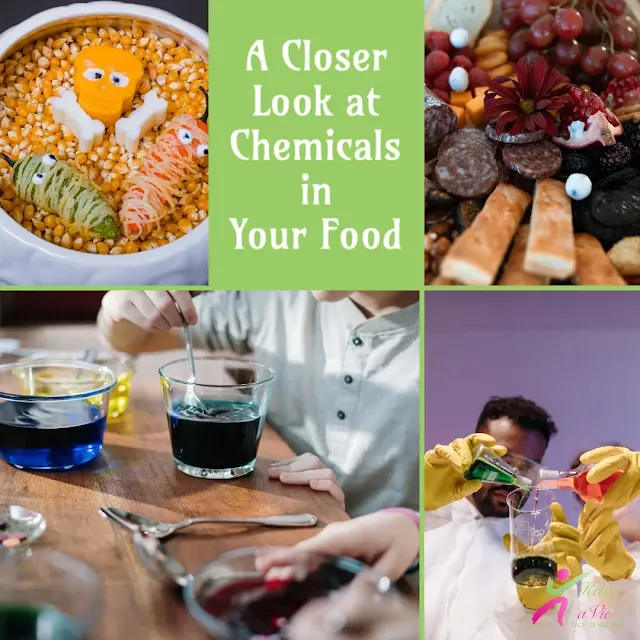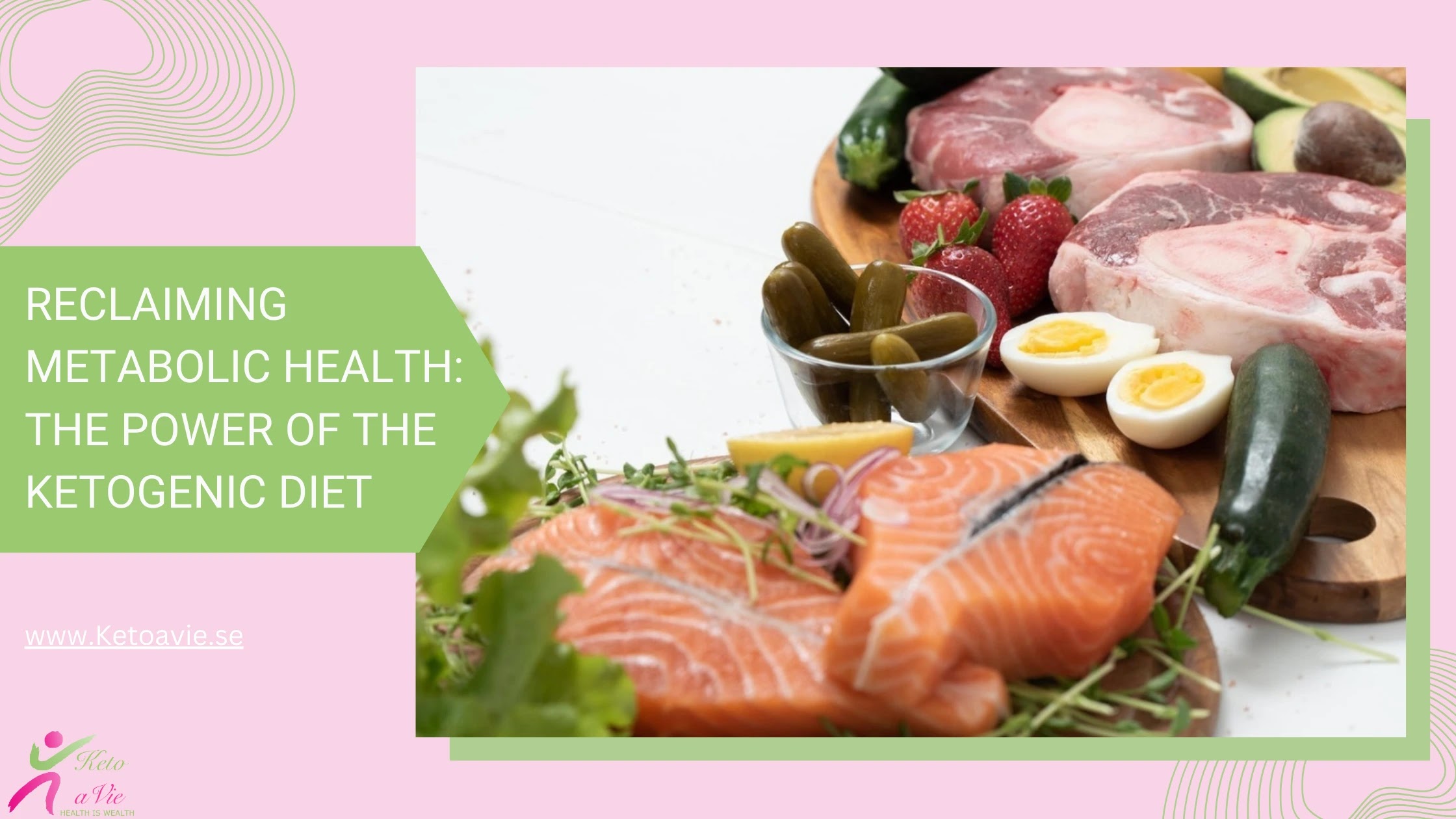Understanding the Impact of Chemical Food Additives and Preservatives on Our Health and Their Connection to Insulin Resistance and Toxins
 |
As a nutritionist, I'm frequently asked about the impact of food additives and preservatives on our health. In today's fast-paced world, we've become increasingly reliant on processed foods that boast a lengthy list of ingredients, many of which we can't even pronounce. However, it's crucial to recognize that what we consume directly influences our health, including its potential role in insulin resistance and exposure to toxins.
Understanding the Impact of Food Additives and Preservatives on Insulin Resistance and Toxins
Food additives are substances intentionally added to food to enhance its flavor, color, texture, or shelf life. Conversely, preservatives are included to prevent spoilage and safeguard food from harmful bacteria, mold, and yeast. While these substances have been employed for centuries, there is a growing concern about their impact on our health and their potential connection to insulin resistance and exposure to toxins. Let's delve deeper into each of these aspects.
Artificial Colors and Flavors: Their Impact on Health and Insulin Resistance
Artificial colors and flavors rank among the most frequently used food additives. Their purpose is to elevate the appearance and taste of processed foods. However, they have been associated with behavioral problems in children and, in some cases, can trigger allergic reactions. Furthermore, certain artificial colors, such as Red 40, Yellow 5, and Blue 1, have raised concerns related to insulin resistance and their potential contribution to health issues.
Preservatives: Their Role in Health and Toxins Exposure
Preservatives are included in food products to extend their shelf life and prevent spoilage. Unfortunately, some of these preservatives may have adverse effects on our health. For instance, sodium benzoate and sulfites have been linked to digestive problems and chronic health conditions like migraines and asthma. Moreover, preservatives like sodium nitrate and nitrite have been associated with an increased risk of specific types of cancer. This underscores the importance of understanding the potential connection between food additives, preservatives, and the presence of toxins in our bodies.
Strategies for Avoiding Additives, Preservatives, and Their Impact on Insulin Resistance and Toxins
The most effective approach to evade the harmful effects of food additives and preservatives is to prioritize fresh, whole foods and prepare your meals at home. Incorporating natural herbs and spices for flavor enhances the nutritional value of your dishes while minimizing exposure to potentially harmful additives and preservatives. When selecting processed foods, vigilantly scrutinize ingredient labels, opting for products that feature minimal ingredients and are based on whole-food components. To further elucidate, here is a list of common additives and preservatives to be mindful of:
- Artificial colors (e.g., Red 40, Yellow 5, Blue 1): These artificial food colorings are prevalent in various processed foods, including candy, cereal, and soft drinks. They have been linked to behavioral problems in children and can trigger allergic reactions, possibly contributing to insulin resistance.
- Artificial flavors: Artificial flavors can be detected in a broad spectrum of processed foods, such as snacks, baked goods, and frozen meals. While they are added to enhance the taste of these products, they have been associated with headaches and other health concerns, including insulin resistance.
- High-fructose corn syrup: High-fructose corn syrup is a common sweetener in processed foods like soft drinks, candy, and baked goods. Its consumption has been linked to obesity, heart disease, type 2 diabetes, and potentially insulin resistance.
- Monosodium glutamate (MSG): MSG, a flavor enhancer commonly used in Chinese cuisine, processed meats, and soups, has been associated with headaches and other health concerns, including insulin resistance.
- Sodium nitrate/nitrite: These preservatives are frequently found in processed meats like bacon, ham, and hot dogs. Their consumption has been linked to an elevated risk of certain types of cancer and potential insulin resistance.
- BHA and BHT: BHA (butylated hydroxyanisole) and BHT (butylated hydroxytoluene) are preservatives used to prevent spoilage in various processed foods, including cereals, snacks, and fatty foods. They have been linked to health concerns, including cancer and developmental problems in animals, and might have implications for insulin resistance.
- Propylene glycol: Propylene glycol, an alcohol type, serves as a preservative in processed foods, including ice cream and packaged baked goods. It has been associated with health concerns, including skin irritation and organ toxicity, which may also contribute to insulin resistance.
- Sodium benzoate: Sodium benzoate, a preservative found in various processed foods like carbonated drinks, fruit juices, and pickles, has been linked to digestive problems and chronic health conditions, including migraines and asthma, which could exacerbate insulin resistance.
- Sulfites: Sulfites, used as preservatives in numerous processed foods, including dried fruits, wine, and beer, have been associated with digestive issues and chronic health conditions, such as migraines and asthma, with potential implications for insulin resistance.
Discovering Healthier Alternatives to Artificial Additives, Preservatives, and Their Impact on Insulin Resistance and Toxins
In today's fast-paced world, processed foods laden with artificial additives and preservatives may seem convenient. However, these substances can have detrimental effects on our health and overall well-being. To make positive changes for your health, it's essential to seek out healthier alternatives to these artificial ingredients.
1. Focus on Fresh, Whole Foods:
At the core of a healthy diet lie fresh, whole foods. Prioritize fruits, vegetables, whole grains, and lean proteins as your primary ingredients. Enhance the flavor of your meals with herbs and spices rather than relying on artificial additives. By emphasizing these natural, unprocessed foods, you can reduce your exposure to artificial additives and preservatives, potentially mitigating their impact on insulin resistance and toxins in your body. Consider starting your day with a fresh fruit and vegetable smoothie or enjoy roasted veggies with your evening meal.
2. Read Labels Diligently:
When selecting processed foods, meticulously read ingredient labels. Steer clear of products containing artificial colors, flavors, and preservatives. Instead, opt for items that incorporate natural alternatives. Choose products with minimal ingredients, favoring those based on whole-food components like whole grain flour, real fruit, and natural sweeteners such as honey or maple syrup. For example, when shopping for granola bars, opt for those with a concise list of recognizable ingredients and avoid those containing artificial preservatives or high-fructose corn syrup.
3. Embrace Natural Food Coloring:
For a touch of color and flavor in your dishes, experiment with natural food coloring alternatives such as beet juice, spirulina, or turmeric. These natural ingredients can add vibrancy to your food without the harmful chemicals present in artificial coloring. Incorporate beet juice to impart a vivid pink hue to your smoothies or use turmeric to infuse a golden tint into your soups and sauces.
4. Explore Natural Flavors:
Instead of depending on artificial flavors, introduce natural alternatives like vanilla extract, cinnamon, and nutmeg into your culinary repertoire. These ingredients can imbue your dishes with depth and richness while offering a healthier option to artificial flavors. Enhance your coffee, smoothies, or baked goods with the subtle sweetness and flavor of natural vanilla extract.
5. Opt for Natural Sweeteners:
High-fructose corn syrup, a common ingredient in processed foods, can be replaced with natural sweeteners such as honey or maple syrup. These natural alternatives provide a touch of sweetness to your food without the adverse effects associated with high-fructose corn syrup. Consider using honey in your oatmeal or maple syrup in your pancakes as healthier alternatives.
Additional Strategies for Minimising the Impact of Additives, Preservatives, Insulin Resistance, and Toxins:
To further curtail your exposure to artificial additives and preservatives and their potential connection to insulin resistance and toxins, consider these strategies:
6. Cook from Scratch:
By preparing your meals, you gain control over the ingredients used, allowing you to avoid artificial additives and preservatives. Craft your soups, stews, sauces, and even baked goods using whole, natural components.
7. Patronize Local Farmers Markets:
Local farmers markets offer fresh, seasonal produce free from harmful additives and preservatives. Supporting local farmers not only benefits your health but also promotes sustainable agriculture and community engagement.
8. Opt for Organic Foods:
Organic foods are generally devoid of artificial additives, preservatives, and harmful pesticides. Look for the USDA Organic certification label to ensure the products you purchase are genuinely organic.
9. Create Your Own Condiments and Sauces:
Many store-bought sauces and condiments contain artificial flavors, colors, and preservatives. Crafting your own allows you to control the ingredients and bypass these potentially harmful substances. For instance, concoct your ketchup by blending fresh tomatoes, vinegar, sugar, and spices.
10. Choose Fresh Snacks Over Processed Options:
Processed snacks like chips, crackers, and cookies often contain artificial flavors, colors, and preservatives. Opt for fresh fruit, homemade snacks, or raw nuts as more wholesome alternatives.
11. Seek Out Certifications:
Look for certifications such as "Non-GMO," "USDA Organic," or "Non-Toxic" to identify products free from artificial additives and preservatives. These certifications offer added assurance and assist you in making informed choices while shopping.
In conclusion, as a nutritionist, comprehending the impact of food additives and preservatives on our health, including their potential association with insulin resistance and toxins, is paramount. Artificial colors and flavors, as well as preservatives, have been linked to behavioral problems in children, allergic reactions, digestive issues, metabolic disorders, and even chronic health problems such as migraines, asthma, and cancer. To mitigate the negative impact of food additives and preservatives on health, prioritize fresh, whole foods, and home-cooked meals. When considering processed foods, scrutinize ingredient labels diligently, selecting products with minimal and whole-food-based ingredients. By adopting these practices, you can take charge of your health, ensuring that the food you consume supports your overall well-being.
Feel free to visit our Page Keto Kitchen for more delicious keto recipes and inspiration.
For a visual demonstration of how to make this recipe, check out our YouTube channel.
If you're interested in more keto-friendly recipes or require personalized nutrition advice to address insulin resistance and reduce exposure to toxins, please don't hesitate to reach out to me.
Explore our other keto recipes: Keto Maamoul Recipe, Keto Knefeh recipe, Cacao Nibs Cookies, Nuts and Seeds Bread and more.
Transparency Note: This article may contain affiliate links. I may earn a small commission from qualifying purchases made through these links. Rest assured, I only recommend products I have personally tested and believe can benefit your keto journey. Your support enables me to provide valuable content. Thank you for your support!
Visit my Amazon Keto Corner for Keto Essentials & Products!






Comments
Post a Comment